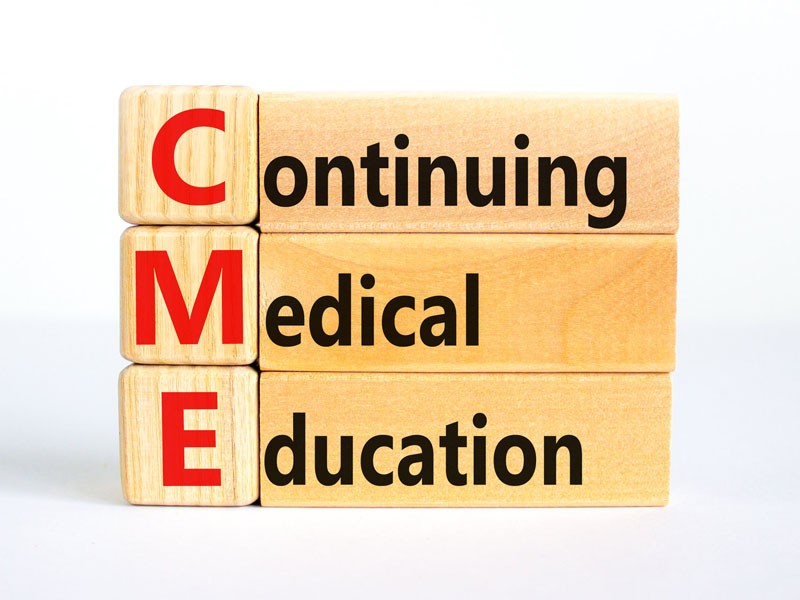
Advantages of Continuing Medical Education (CME) for Healthcare Professionals
Medical professionals are entrusted with the well-being of individuals, making it imperative for them to stay abreast of the latest advancements in the constantly evolving field of healthcare. Participating in CME conferences in 2024 plays a pivotal role in refining skills, enhancing knowledge, and ensuring the delivery of optimal patient care.
Refining skills to improve overall patient care
One of the primary advantages of engaging in CME is the opportunity it provides for healthcare professionals to refine their skills. Through specialized training and workshops, practitioners can fine-tune their abilities, ultimately leading to improved patient care outcomes. Whether it's mastering a new surgical technique or staying updated on the latest treatment modalities, attending CME conferences in 2024 contributes to the overall competence of healthcare providers.
Improves and establishes knowledge of the modern medical field
Medical knowledge evolves rapidly, with groundbreaking discoveries and advancements occurring regularly. CME conferences in 2024 enable healthcare professionals to stay ahead of the curve by updating their understanding of the modern medical field. This not only ensures that practitioners are well-versed in the latest research and technologies but also establishes them as experts in their respective domains.
Continues to maintain current knowledge and skills of the profession
To be effective in their roles, healthcare professionals must maintain current knowledge and skills. CME acts as a bridge between initial education and the latest advancements, helping professionals stay relevant and capable in an ever-changing healthcare landscape. This ongoing learning process is crucial for providing high-quality care and adapting to emerging healthcare challenges.
Education for physicians and patients is beneficial
CME extends beyond just benefiting healthcare professionals; it also contributes to patient education. Informed patients are better equipped to actively participate in their healthcare decisions. By sharing the latest information and advancements with patients, physicians promote a collaborative approach to healthcare, fostering trust and empowering individuals to make well-informed choices regarding their well-being.
Reduces medical errors and improves patient safety
Continuous education plays a pivotal role in reducing medical errors and enhancing patient safety. Healthcare professionals who regularly participate in CME conferences in 2024 are more likely to adopt best practices, adhere to safety protocols, and avoid common pitfalls that could jeopardize patient well-being. This commitment to ongoing education creates a safer healthcare environment for both providers and patients.
Maintains competency and upgrades knowledge
Competency is the cornerstone of effective healthcare delivery. CME conferences in 2024 serve as a mechanism for healthcare professionals to continuously assess and maintain their competency levels. By upgrading their knowledge and skills, practitioners can adapt to emerging trends, effectively address patient needs, and maintain a high standard of care throughout their careers.
Provides physicians and patients with more accessible education
The accessibility of educational resources has significantly improved with the advent of online learning platforms. CME, through e-learning on platforms like eMedEvents, a global continuing medical education (CME) platform, provides healthcare professionals with convenient and flexible options for continuing education. This accessibility not only accommodates busy schedules but also facilitates continuous learning, ensuring that medical professionals can engage in education at their own pace.
Enhances patient-physician communication
Effective communication is fundamental to successful healthcare outcomes. CME often includes training in communication skills, improving the interaction between healthcare professionals and their patients. Enhanced communication fosters trust, ensures patient understanding, and strengthens the patient-physician relationship, ultimately contributing to better healthcare experiences.
Improves medical care and health of the population
The cumulative effect of healthcare professionals engaging in CME conferences in 2024 is a positive impact on the overall medical care and health of the population. As practitioners stay informed about the latest treatments, technologies, and preventive measures, they contribute to a healthier society. The ripple effect of continuous education extends beyond individual patient interactions to influence public health outcomes on a broader scale.
How important is medical education?
Medical education is of paramount importance as it forms the foundation for healthcare professionals' knowledge and skills. It equips individuals with the necessary expertise to navigate the complexities of the medical field, fostering a commitment to lifelong learning and ensuring the delivery of high-quality patient care.
What is continuing education, and why is it important in healthcare?
Continuing education is an ongoing process of learning and skill development that professionals undertake to stay current in their respective fields. In healthcare, it is crucial due to the rapid advancements in medical knowledge and technologies. Continuous education ensures that healthcare professionals remain competent, adaptable, and capable of delivering optimal care in the face of evolving challenges.
What are the benefits of CME?
The benefits of Continuing Medical Education (CME) are multifaceted. CME refines skills, updates knowledge, reduces errors, and enhances patient safety. Attending CME conferences in 2024, such as those organized by platforms like eMedEvents, provides accessible education, improves communication, maintains competency, and ultimately contributes to better medical care and the overall health of the population.
What are the advantages of e-learning in medical education?
E-learning in medical education offers several advantages, including flexibility, accessibility, and cost-effectiveness. Healthcare professionals can engage in learning activities at their own pace and convenience, utilizing online resources that cater to diverse learning styles. This mode of education also allows for real-time updates, ensuring that medical professionals have immediate access to the latest information and research findings. The integration of e-learning in CME makes education more dynamic, interactive, and responsive to the evolving needs of the healthcare industry.